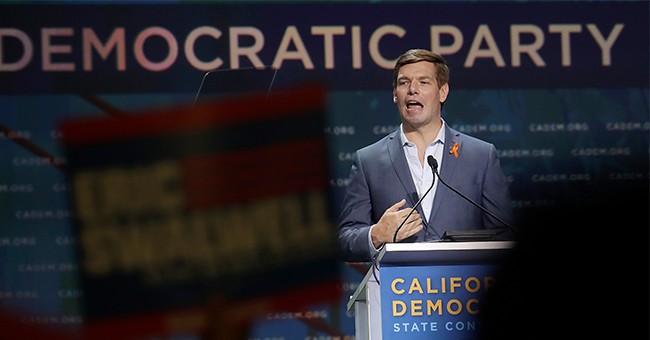
I do miss the entertainment value of California state-level politics. Nowhere in the history of mankind — literally — have so many STUPID people managed to elevate themselves through crass identity politics into a position of authority over so much money belonging to others. Sooner or later they will run out of other people’s money to spend on the idiotic notions that occur to them about what is “best” for Californians — or they’ll run out of Californians willing to pay for their idiotic notions.
With that said, let us turn to the latest fun and games involving the California GOP’s “revenge” in the great “Ballot Harvesting Caper” of 2020.
To begin with, California has the most ridiculously lax ballot harvesting law ever imagined. They passed it in late Nov. 2016 after Donald Trump won the Presidency, and they clearly had in mind making use of it in a variety of nefarious ways in 2018. They did so to great benefit, flipping several Congressional races in traditionally GOP districts that had become purple over the course of several election cycles.
The basic practice, as employed by Democrats, was to know the home address of every Democrat who requested an absentee ballot in the 2018 election. One way they did that was by aggressively pushing registered Democrat voters to ask for absentee ballots and track those who did by their home address given when they sought the ballot through the party.
In the days leading up to the election, an army of volunteers — many of them union members from all parts of the labor movement in California, started knocking on the doors of those voters. Many were elderly or otherwise housebound. What the changes in the election law had done, however, was to allow ANY third party to take possession of a completed absentee ballot for the purpose of delivering that ballot in person to election officials as provided by California law, which gives the ballot harvester three days from the date the ballot was signed to deliver the envelope to the appropriate county election official. There are no limits in the new law on how many ballots an individual can collect and deliver. In fact, there are almost no limits of any kind on anything. Just get as many as you can and deliver them to the correct elections office that issued them to the voter.
California Elections Code Section 3017 — as amended in Nov. 2016 — now reads as follows:
(a) All vote by mail ballots cast under this division shall be voted on or before the day of the election. After marking the ballot, the vote by mail voter shall do any of the following: (1) return the ballot by mail or in person to the elections official from whom it came, (2) return the ballot in person to a member of a precinct board at a polling place within the jurisdiction, or (3) return the ballot to the elections official from whom it came at a vote by mail ballot drop-off location, if provided pursuant to Section 3025. However, a vote by mail voter who is unable to return the ballot may designate any person to return the ballot to the elections official from whom it came or to the precinct board at a polling place within the jurisdiction. The ballot must, however, be received by either the elections official from whom it came or the precinct board before the close of the polls on election day.
For this year’s election, ALL registered voters in California will receive a ballot in the mail, and they can vote in person, by mailing the ballot, or by delivery of the ballot by any person to the appropriate election official who issued the ballot.
When a vote by mail ballot is returned by a third party as contemplated, it must comply with Cal. Elec. Code Section 3011, which states:
(a) The identification envelope shall contain all of the following:
(1) A declaration, under penalty of perjury, stating that the voter resides within the precinct in which he or she is voting and is the person whose name appears on the envelope.
(2) The signature of the voter.
(3) The residence address of the voter as shown on the affidavit of registration.
(4) The date of signing.
(5) A notice that the envelope contains an official ballot and is to be opened only by the canvassing board.
(6) A warning plainly stamped or printed on it that voting twice constitutes a crime.
(7) A warning plainly stamped or printed on it that the voter must sign the envelope in his or her own handwriting in order for the ballot to be counted.
(8) A statement that the voter has neither applied, nor intends to apply, for a vote by mail voter’s ballot from any other jurisdiction for the same election.
(9) The name of the person authorized by the voter to return the vote by mail ballot pursuant to Section 3017 .
(10) The relationship to the voter of the person authorized to return the vote by mail ballot.
(11) The signature of the person authorized to return the vote by mail ballot.
Those last three provisions would seem to be important — correct? If you entrust your ballot envelope to a third party, not only should the ballot contain all the information necessary if you were to return it yourself, but also information about the third-party to whom you have entrusted your ballot.
But, in fact, the California legislature doesn’t think that information is important since the final provision of Sec. 3011 reads:
(c) Notwithstanding paragraphs (9) to (11), inclusive, of subdivision (a), a ballot shall not be disqualified solely because the person authorized to return it did not provide on the identification envelope his or her name, relationship to the voter, or signature.
So, the voter is not disenfranchised because the ballot does not have the required information about the third-party ballot harvester. No name required, no relationship need be stated, and no signature of the ballot harvester.
So, given the sheer stupidity of such a provision, how are California Republicans taking advantage of this gigantic loophole in the law?
At locations around the state where GOP leaning voters are likely to gather — churches, gun clubs, country clubs, local party offices, etc., the California GOP has placed ballot collection “dropboxes” and are encouraging Republican voters to simply deliver their ballots into the dropboxes, and the person(s) who have the dropboxes at their location will timely deliver the ballots to the appropriate election office as is allowed under the new “Ballot Harvesting” law passed by the California Legislature.
California GOP claims ownership of unofficial ballot boxes in LA, Orange counties, cites state ballot harvesting law:
'If Democrats are so concerned with ballot harvesting, they are the ones who wrote the legislation' https://t.co/pPsWrXKG07
— CBS Los Angeles (@CBSLA) October 12, 2020
This has now drawn the attention of the California Secretary of State and the California Attorney General, representatives of whom have signed a “Cease and Desist” letter to various GOP Party entities and individuals.
With regard to the “dropboxes”, the letter states:
“Only county elections officials have the authority to determine the number, locations, and hours of vote by mail drop boxes…”
Naturally, they cite no statute providing such — the statute they do cite lays out how Counties may establish procedures for the use of dropboxes and the steps that must be taken for security purposes. But the statute does not say only Counties are authorized to employ such devices, nor does it say that third party “ballot harvesters” as authorized by Sec. 3017 cannot use a “dropbox” as a collection point for the ballots they are “harvesting” as contemplated in the amended statutory language as written by the Democrat Legislature in 2016. There is no provision in any state election law concerning how the “ballot harvester” is to store the ballots during the 72 hours he/she is authorized to have custody of them. So, the California GOP is keeping them in boxes — “dropboxes”.
There may be an issue with regard to how the dropboxes being employed by the GOP party interests are labeled. The letter claims some of the third-party dropboxes used the word “Official” in their labeling, and this likely contravenes the statute since these are not dropboxes established by the County election officials.
But with regard to the issue of third parties using such collection devices to aggregate mail-in ballots from GOP voters, the Democrats have only their poorly thought out statutory amendment from 2016 to blame.
My colleague Jenn Van Lar lays out the reaction of California GOP officials to the “Cease and Desist” letter sent today. It’s pretty much a “Lord of the Flies” scenario — given life by the Democrats’ desire to take and hold power by any means necessary. What the GOP has done is simply fight back on the same terms.
It’s worth noting that California Secretary of State Alex Padilla may be the most overtly partisan politician to occupy any position in the country that is responsible for conducting a fair electoral process.
“When the Secretary State’s office becomes a stepping stone to other office, it’s inevitable that it’s going to serve a kind of partisan purpose. And I think that that disserves the voters,” said U.C. Irvine Law Professor Rick Hasen, one of the nation’s leading election law experts. Hasen said the job should be above politics.
That does not describe the current Secretary of State. Padilla regularly endorses candidates for office and this year he has campaign committees to raise money for three statewide propositions, including ones to end the ban on affirmative action (Prop. 16) and another (Prop. 18) to allow 17-year-olds to vote in primary elections.
“[The Secretary of State] should be someone whose allegiance is first and foremost to the integrity of the election system. I certainly shouldn’t be endorsing candidates or serving on their committees,” Hasen said.
In 2016 Padilla endorsed Hillary Clinton for president which she won over Sen. Bernie Sanders. At the Democratic National Convention in Philadelphia that year, supporters of Sanders were furious at Padilla — shouting him down at a delegation breakfast — and claimed he had disadvantaged Sanders in the California primary.
Kim Alexander, founder and president of the nonpartisan California Voter Foundation, has worked with Secretaries of State for more than 25 years. She says one thing, in particular, distinguishes the current office-holder from the rest.
“Most Secretaries of State that I’ve worked with have been and have operated in a rather nonpartisan way. And that’s changed under the current administration,” Alexander said.
Among the people Padilla has endorsed over the years is Gavin Newsom, who the Secretary of State supported in 2017, more than a year before the primary election for governor. And if things turn out as Democrats hope, Gov. Newsom will soon be choosing someone to serve out the remainder of Kamala Harris’s term in the U.S. Senate.
Padilla says he’s honored to be mentioned as a possible U.S. Senator but he’s just focusing on overseeing the November election.
THAT is what the California GOP is up against.
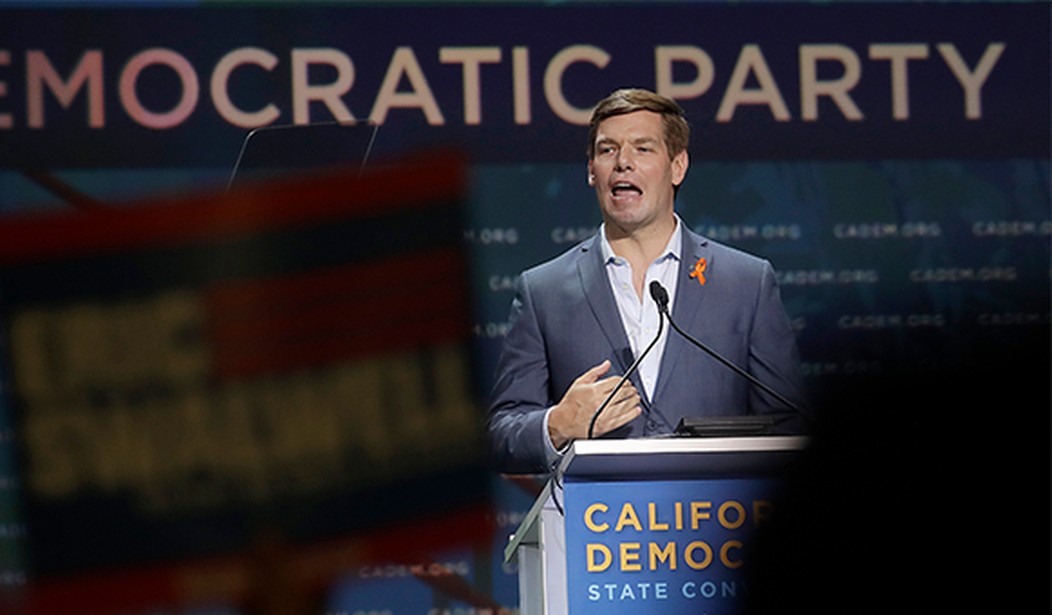

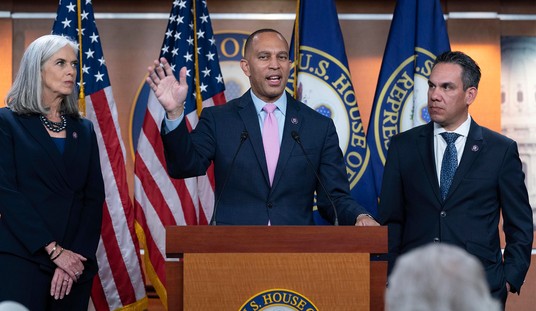


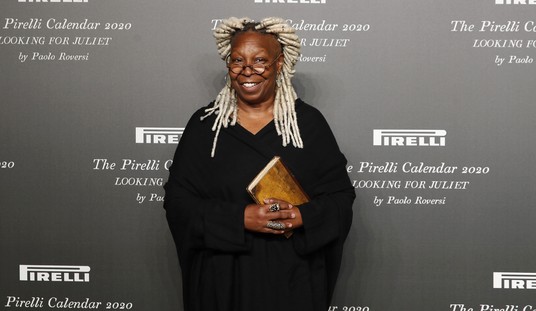





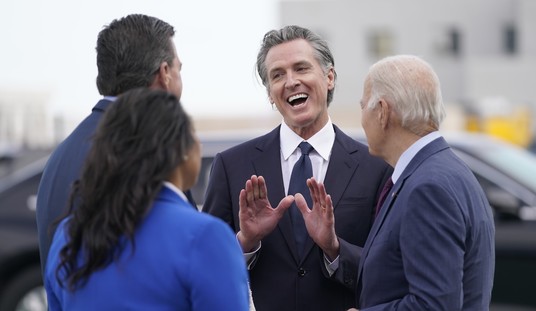


Join the conversation as a VIP Member